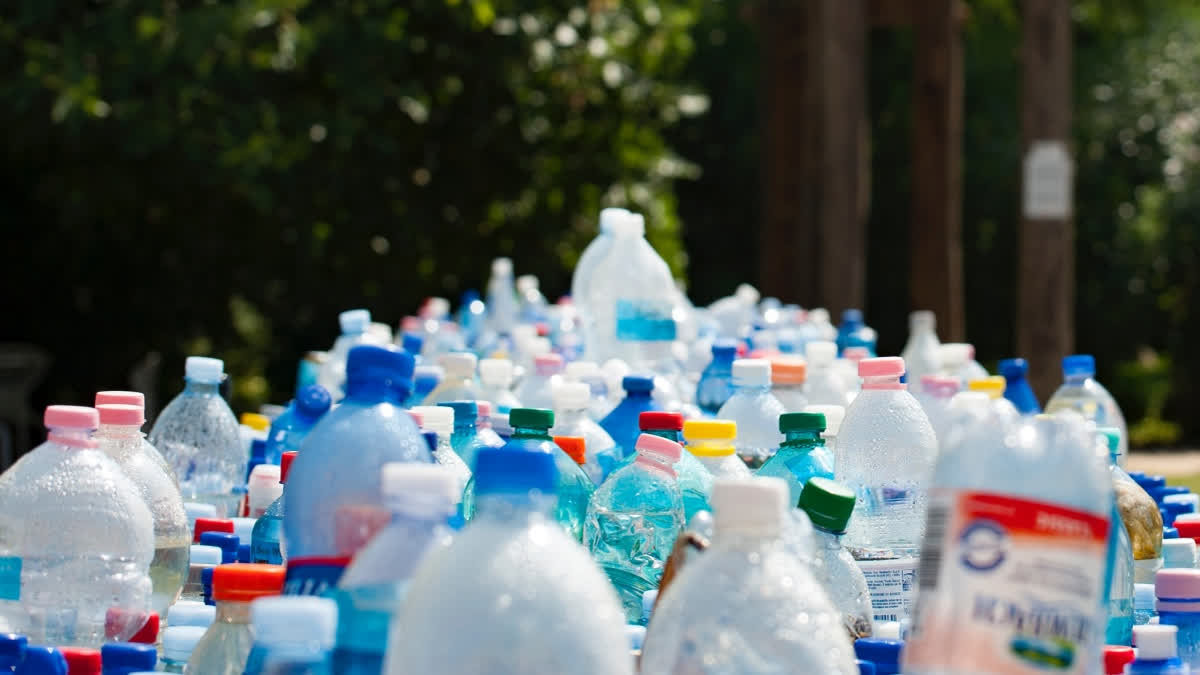New Delhi: Scientists have found microorganisms capable of digesting plastic in the high altitudes of the Alps of Switzerland and in the polar regions of the Arctic, where temperatures are low. While several microorganisms that can do this have already been found, when their enzymes that make this possible are applied at an industrial scale, they typically only work at temperatures above 30 degrees Celsius. The heating required meant that industrial applications remain costly to date, and are not carbon-neutral.
A possible solution to this problem described by the scientists from the Swiss Federal Institute WSL, Switzerland, in this study, published in Frontiers in Microbiology, involved finding specialist cold-adapted microbes whose enzymes work at lower temperatures. "Here we show that novel microbial taxa obtained from the 'plastisphere' of alpine and arctic soils were able to break down biodegradable plastics at 15 degrees Celsius," said first author Joel Ruthi, currently a guest scientist at WSL. "These organisms could help to reduce the costs and environmental burden of an enzymatic recycling process for plastic."
Isolating microbes by sampling 19 strains of bacteria and 15 of fungi growing on free-lying or intentionally buried plastic kept in the ground for one year in Greenland, Svalbard (Norwegian archipelago in the Arctic Ocean) and Switzerland, the research team let them grow as single-strain cultures in the laboratory in darkness and at 15 degrees Celsius.
Using molecular techniques to identify them, the researchers found that the bacterial strains belonged to 13 genera in the phyla Actinobacteria and Proteobacteria, and the fungi to 10 genera in the phyla Ascomycota and Mucoromycota. They then used a suite of assays to screen each strain for its ability to digest sterile samples of non-biodegradable polyethylene (PE) and the biodegradable polyester-polyurethane (PUR) as well as two commercially available biodegradable mixtures of polybutylene adipate terephthalate (PBAT) and polylactic acid (PLA).
Also read: Specific training can help computer vision models learn like humans: Study
None of the strains were able to digest PE, even after 126 days of incubation on these plastics. But 19 (56 per cent) of strains, including 11 fungi and eight bacteria, were found to be able to digest PUR at 15 degrees Celsius, while 14 fungi and three bacteria were able to digest the plastic mixtures of PBAT and PLA.
Nuclear Magnetic Resonance (NMR) and a fluorescence-based assay confirmed that these strains were able to chop up the PBAT and PLA polymers into smaller molecules. "It was very surprising to us that we found that a large fraction of the tested strains was able to degrade at least one of the tested plastics,," said Ruthi.
The best performers, the researchers found, were two uncharacterized fungal species in the genera Neodevriesia and Lachnellula: these were able to digest all of the tested plastics except PE. The results also showed that the ability to digest plastic depended on the culture medium for most strains, with each strain reacting differently to each of four media tested.
How did the ability to digest plastic evolve? "Microbes have been shown to produce a wide variety of polymer-degrading enzymes involved in the break-down of plant cell walls. "In particular, plant-pathogenic fungi are often reported to biodegrade polyesters, because of their ability to produce cutinases which target plastic polymers due their resemblance to the plant polymer cutin," explained last author Beat Frey, a senior scientist and group leader at WSL.
"The next big challenge will be to identify the plastic-degrading enzymes produced by the microbial strains and to optimize the process to obtain large amounts of proteins. "In addition, further modification of the enzymes might be needed to optimize properties such as protein stability," said Frey. (PTI)



